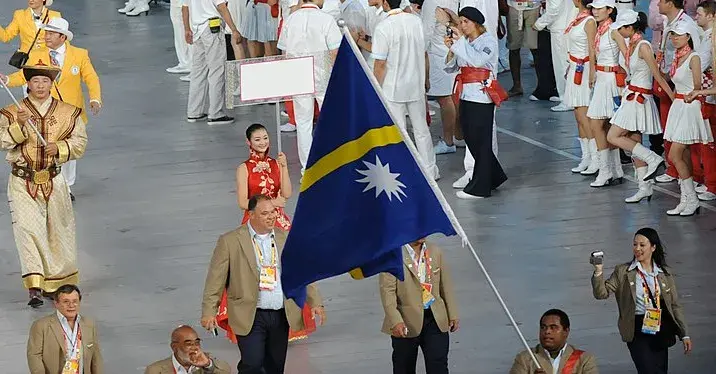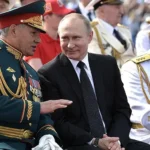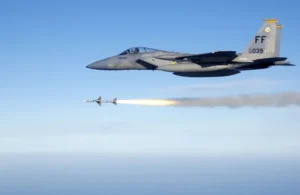The move comes after the presidential elections in Taiwan, where a candidate rejected by China was elected

Nauru, one of the world’s smallest and most isolated nations, announced on Monday that it was severing its diplomatic ties with Taiwan and resuming its relations with China, in a move that Taiwan denounced as a “blatant attack on democracy” and a result of China’s “money diplomacy”.
The decision came just two days after Taiwan held its presidential election, in which the incumbent leader Lai Ching-te, who advocates for Taiwan’s sovereignty and independence, secured a landslide victory against his pro-China rival. Lai, who leads the ruling Democratic Progressive Party (DPP), will be sworn in for his second term on May 20.
Taiwan, officially known as the Republic of China (ROC), is a self-governing island that has been effectively independent from mainland China since 1949, when the Communist Party of China (CPC) took over the mainland and the ROC government fled to Taiwan. However, China, officially known as the People’s Republic of China (PRC), considers Taiwan as a renegade province that must be reunited with the mainland, by force if necessary, and refuses to recognise any country that maintains formal diplomatic relations with Taiwan.
Over the years, China and Taiwan have engaged in a fierce competition for international recognition and influence, often using economic incentives and political pressure to sway the decisions of other countries. Taiwan has seen its number of diplomatic allies dwindle from 22 in 2016 to 12 now, as China has successfully lured away several countries in Africa, Latin America and the Pacific with promises of trade, investment and aid.
Nauru, a tiny island nation in the Pacific with a population of about 12,500, is the latest country to switch sides in the cross-strait dispute. Nauru had established diplomatic ties with Taiwan in 1980, but switched to China in 2002, only to return to Taiwan in 2005. On Monday, Nauru’s government issued a statement saying that it had decided to “seek full resumption of diplomatic relations with the PRC” and “terminate diplomatic relations with the ROC”, in order to “advance the best interests of the Republic of Nauru and its people”.
Nauru’s statement did not mention any specific reasons or benefits for its decision, nor did it acknowledge the recent election in Taiwan. However, Taiwan’s Deputy Foreign Minister Tien Chung-kwang told reporters at an emergency press conference that China had timed its move to coincide with the election and to exert pressure on Taiwan. He said that China had offered Nauru a huge amount of money, far more than what Taiwan could afford, to persuade it to switch allegiance.
“China is trying everything they can – money diplomacy – to repress us,” Tien said. “They specifically chose this sensitive timing after the election to target Nauru. This is an ambush-like move and a blatant attack on democracy.”
Tien said that Taiwan had learned about Nauru’s decision only hours before it was announced, and that Taiwan had tried to dissuade Nauru from making the switch, but to no avail. He said that Taiwan was deeply disappointed and regretted Nauru’s decision, but respected its sovereignty and wished it well.
A senior Taiwan official, who spoke on the condition of anonymity because he was not authorised to speak publicly, told Reuters that China had offered Nauru $100 million a year to switch sides, while Taiwan had provided Nauru with about $10 million a year in aid and assistance.
A spokesperson for Nauru’s government declined to comment on the amount of money involved in the deal, or whether it had consulted with other countries before making the decision.
China’s Foreign Ministry spokesperson Mao Ning welcomed Nauru’s decision and praised it as a “right choice” that reflected Nauru’s “independent” and “sovereign” will. He did not directly answer a question on how much money China had offered Nauru, but said that China was willing to “provide assistance within its capacity” to Nauru for its economic and social development.
“Nauru, as a sovereign state, has made the right choice to resume diplomatic relations with China independently,” Mao said. “We appreciate and welcome Nauru’s return to the big family of China-Pacific island cooperation.”
Mao also reiterated China’s position that there is only one China in the world and that Taiwan is an inalienable part of China. He urged other countries that still have diplomatic ties with Taiwan to follow Nauru’s example and “recognise the historical trend and the one-China principle” and “sever the so-called ‘diplomatic relations’ with Taiwan as soon as possible”.
Taiwan’s Presidential Office issued a statement in response to Nauru’s decision, saying that it was a “serious provocation” and a “suppression” of Taiwan’s diplomatic space by China, but that it could not shake the determination and will of the Taiwanese people to participate in the international community and defend their sovereignty and dignity. The statement also said that Taiwan and China are not subordinate to each other, and that Taiwan will continue to uphold its democratic values and way of life, and seek peaceful and stable cross-strait relations.
Taiwan’s 12 remaining diplomatic allies are mostly small and developing countries in Central America, the Caribbean, Africa and the Pacific. They include the Vatican, the only European state that recognises Taiwan, as well as Guatemala, Paraguay, Belize, Haiti, Saint Lucia, Saint Vincent and the Grenadines, Saint Kitts and Nevis, Eswatini, Palau, Tuvalu and the Marshall Islands.
Taiwan’s Foreign Minister Joseph Wu is currently in Guatemala, where he attended the inauguration of its new president Alejandro Giammattei on Tuesday. Wu said that he had met with several of Taiwan’s diplomatic allies during his visit, and that they had expressed their support and solidarity with Taiwan.
Nauru is a former phosphate mining colony that gained independence from Australia in 1968. It is one of the world’s least visited countries, with no direct flights from any major airport. It uses the Australian dollar as its currency and relies heavily on revenue from fishing licences and hosting a regional processing centre for asylum seekers for the Australian government.
Nauru’s banking system is in crisis, as the only bank operating in the country, the Bendigo Bank, announced in December that it would close its Nauruan branch by the end of January, citing commercial reasons. Nauru’s government has been scrambling to find an alternative banking service provider, but has not yet announced any solution.
Australia is Nauru’s main partner and donor, providing about A$46 million (US$31 million) in development assistance in 2023, as well as policing support and technical assistance. Australia’s Foreign Minister Marise Payne said on Monday that Australia respected Nauru’s decision to switch diplomatic ties from Taiwan to China, and that it would not affect Australia’s relationship with Nauru.
“We respect the sovereign right of countries to determine who they recognise diplomatically,” Payne said. “Australia’s longstanding and enduring partnership with Nauru is based on shared values and mutual respect, and this will continue.”







